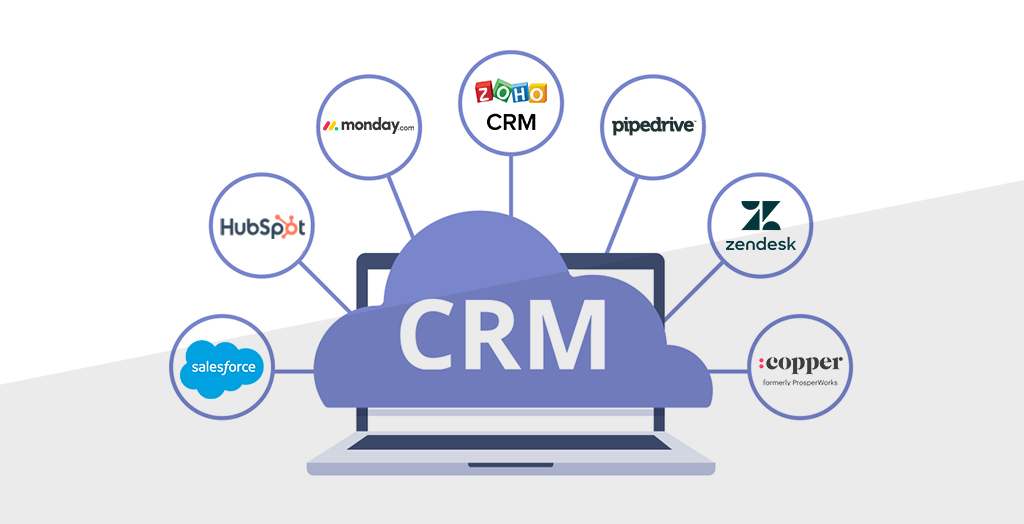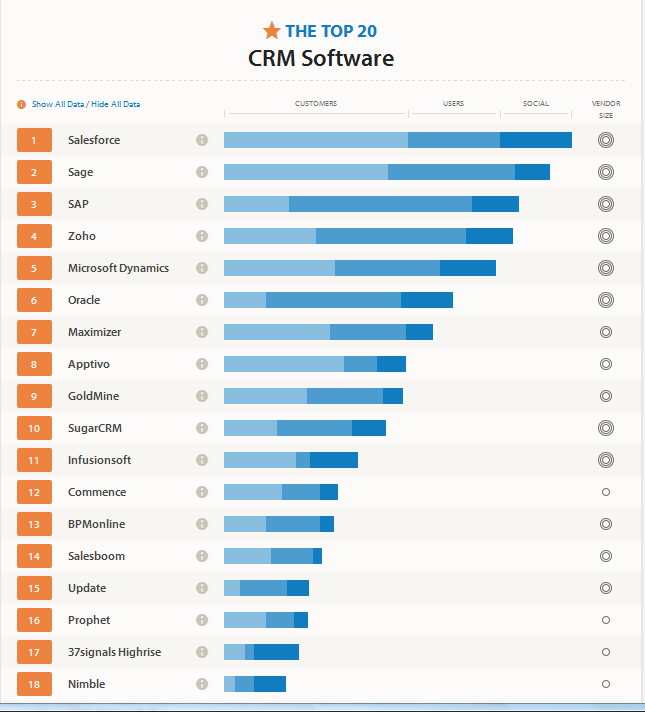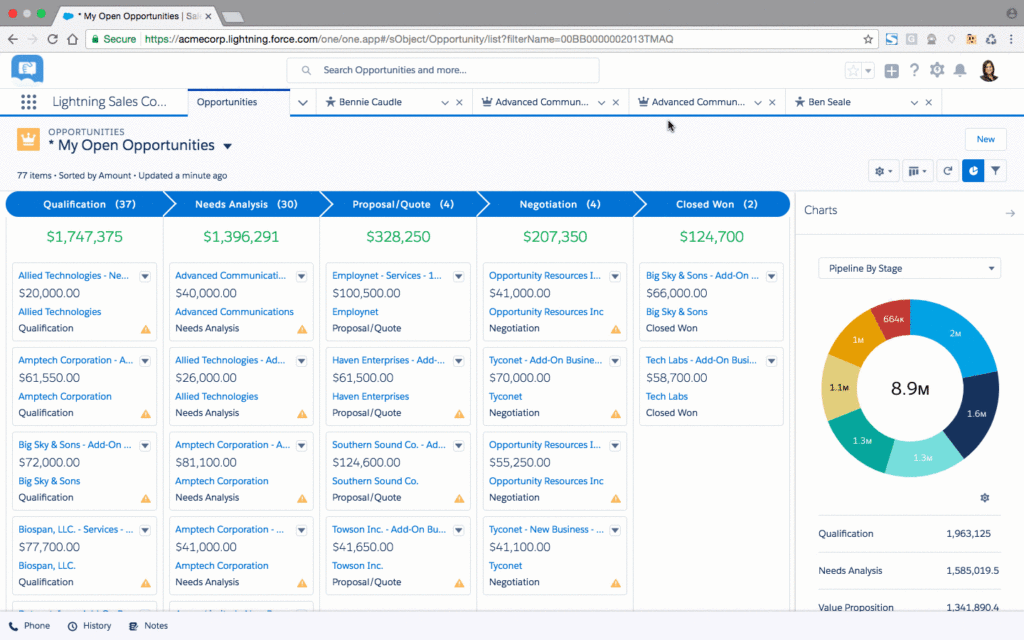The Best CRM Systems for Your Business in 2024
Finding the right CRM (Customer Relationship Management) system can feel like searching for a needle in a haystack. With so many options available, it’s easy to get overwhelmed. But don’t worry, this guide will help you navigate the world of CRMs and find the perfect fit for your business needs. We’ll break down the key features, pricing, and benefits of some of the top contenders, helping you make an informed decision.
What is a CRM and Why Do You Need One?
Before we dive into specific systems, let’s clarify what a CRM is and why it’s essential for your business success. A CRM is software designed to manage and analyze customer interactions and data throughout the customer lifecycle. Think of it as a central hub for all things related to your customers. It helps you:
-
Organize customer information: Keep track of contact details, purchase history, communication logs, and more, all in one place. This eliminates the chaos of scattered spreadsheets and ensures you always have the information you need at your fingertips. (Keywords: customer data management, contact management, customer information organization)
-
Improve customer service: Quickly access customer history to provide personalized and efficient support. This leads to happier customers and increased loyalty. (Keywords: customer service improvement, personalized customer service, customer support efficiency)
-
Boost sales: Track leads, manage sales pipelines, and identify opportunities for growth. A CRM helps you close deals faster and increase revenue. (Keywords: sales management, lead tracking, sales pipeline management, revenue growth)
-
Automate tasks: Reduce manual work by automating repetitive tasks such as email marketing, follow-ups, and reporting. This frees up your time to focus on more strategic initiatives. (Keywords: CRM automation, task automation, email marketing automation)

-
Gain valuable insights: Analyze customer data to identify trends, preferences, and areas for improvement. This data-driven approach helps you make smarter business decisions. (Keywords: data analysis, customer insights, business intelligence)


Top CRM Systems: A Detailed Comparison
Now, let’s explore some of the leading CRM systems available on the market. Remember, the "best" CRM depends entirely on your specific business needs and budget.
| CRM System | Pricing Model | Key Features | Best For | Pros | Cons |
|---|---|---|---|---|---|
| Salesforce Sales Cloud | Subscription (various plans) | Sales force automation, lead management, opportunity tracking, reporting | Large enterprises, complex sales processes | Comprehensive features, robust integrations, excellent scalability | Can be expensive, complex to implement and learn |
| HubSpot CRM | Freemium (paid plans available) | Contact management, email marketing, sales pipeline management, reporting | Small to medium-sized businesses | User-friendly interface, affordable options, good marketing automation | Limited advanced features in the free plan, some features may require paid add-ons |
| Zoho CRM | Subscription (various plans) | Contact management, sales automation, customer support, marketing automation | Small to medium-sized businesses | Affordable, versatile, wide range of integrations | Can feel overwhelming with so many features for smaller businesses |
| Microsoft Dynamics 365 | Subscription (various plans) | Comprehensive CRM suite, integrates well with other Microsoft products | Large enterprises, businesses using Microsoft products | Seamless integration with Microsoft ecosystem, robust features | Can be expensive, complex implementation |
| Pipedrive | Subscription (various plans) | Sales pipeline management, lead management, deal tracking | Sales teams, businesses focused on sales | Simple and intuitive interface, excellent sales pipeline visualization | Limited marketing automation features |
(Keywords: Salesforce, HubSpot, Zoho CRM, Microsoft Dynamics 365, Pipedrive, CRM pricing, CRM features, CRM comparisons)
Choosing the Right CRM for Your Business Size
The ideal CRM varies greatly depending on your business size and complexity.
For Small Businesses:
Small businesses often benefit from CRMs with user-friendly interfaces and affordable pricing. HubSpot CRM’s freemium model and Zoho CRM’s versatile options are excellent choices. They offer a balance of essential features without overwhelming complexity. (Keywords: small business CRM, affordable CRM, user-friendly CRM)
For Medium-Sized Businesses:
As your business grows, you’ll need a CRM that can scale with you. HubSpot’s paid plans, Zoho CRM, and Pipedrive offer a good balance of features and scalability. They can handle increasing numbers of contacts and transactions while providing advanced analytics. (Keywords: medium-sized business CRM, scalable CRM, advanced CRM features)
For Large Enterprises:
Large enterprises often require a comprehensive and highly customizable CRM solution. Salesforce Sales Cloud and Microsoft Dynamics 365 are powerful systems that can handle complex sales processes, large amounts of data, and integration with other enterprise applications. (Keywords: enterprise CRM, large business CRM, customizable CRM)
Key Features to Consider When Choosing a CRM
Before making your decision, consider these essential features:
- Contact Management: How effectively does the CRM organize and manage customer information?
- Sales Pipeline Management: Does it provide a clear view of your sales process and help you track progress?
- Marketing Automation: Can it automate marketing tasks like email campaigns and social media posting?
- Customer Support Features: Does it offer tools for managing customer inquiries and resolving issues efficiently?
- Reporting and Analytics: Does it provide insightful reports to help you track key metrics and make data-driven decisions?
- Integrations: Can it integrate with other tools you use, such as email marketing platforms and accounting software?
- Scalability: Can it grow with your business as your needs evolve?
- User-Friendliness: Is it easy to use and navigate, even for non-technical users?
(Keywords: CRM features, contact management, sales pipeline, marketing automation, customer support, reporting, analytics, integrations, scalability, user-friendliness)
CRM Implementation and Training
Once you’ve chosen a CRM, successful implementation is crucial. This involves careful planning, data migration, and user training. Consider these steps:
- Planning: Define your goals, identify key users, and map out your implementation strategy.
- Data Migration: Transfer your existing customer data to the new CRM accurately and efficiently.
- User Training: Provide comprehensive training to ensure users can effectively utilize the CRM’s features.
- Ongoing Support: Establish a process for ongoing support and maintenance to address any issues that arise.
(Keywords: CRM implementation, data migration, user training, CRM support)
Conclusion
Choosing the right CRM can significantly impact your business’s success. By carefully considering your needs, budget, and the features outlined above, you can find the perfect solution to streamline your operations, improve customer relationships, and drive growth. Remember to leverage the free trials and demos offered by many CRM providers to test the system before committing to a purchase. Don’t hesitate to seek professional advice if needed during the selection and implementation process.
FAQ
-
Q: How much does a CRM system cost? A: CRM pricing varies widely depending on the provider, features, and number of users. Some offer freemium models, while others have subscription plans ranging from a few dollars to hundreds of dollars per month.
-
Q: How long does it take to implement a CRM? A: Implementation time varies depending on the complexity of the system and the size of your business. It can range from a few weeks to several months.
-
Q: What if I need help with my CRM? A: Most CRM providers offer support resources, including documentation, online help, and customer support teams. Some may also offer implementation services.
-
Q: Can I integrate my CRM with other software? A: Yes, many CRMs offer integrations with other business applications, such as email marketing platforms, accounting software, and social media tools.
-
Q: What are the key performance indicators (KPIs) to track with a CRM? A: Key KPIs include customer acquisition cost, customer lifetime value, customer churn rate, sales conversion rate, and average deal size.
(Keywords: CRM cost, CRM implementation time, CRM support, CRM integrations, CRM KPIs)
Remember, this is a comprehensive guide to help you find the best CRM system for your specific needs. The information provided is intended to be informative and should not be considered professional advice. Always do your own thorough research and consider consulting with experts when making significant business decisions.
